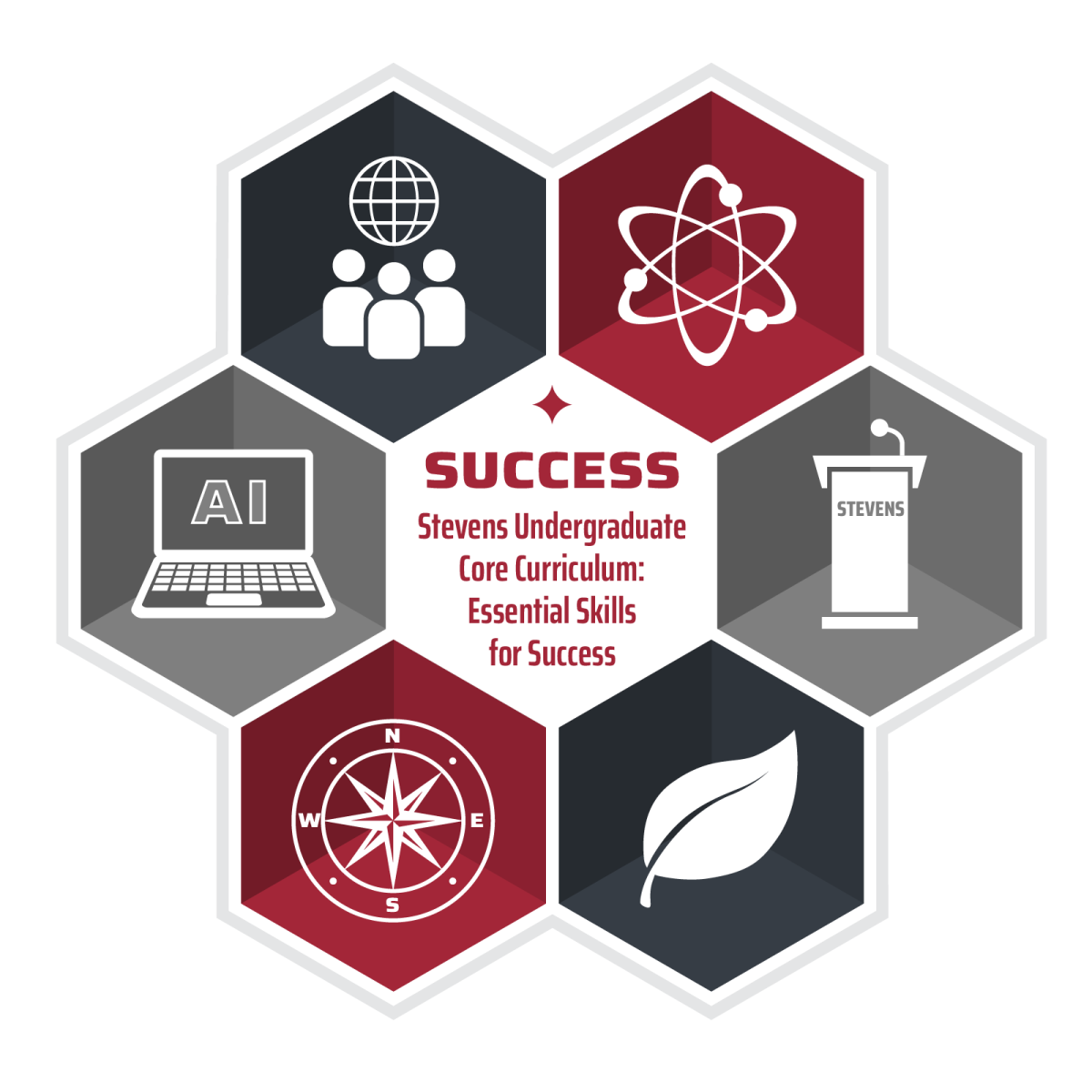Stevens Announces Innovative New Core Curriculum: SUCCESS
The carefully curated curriculum was designed to deliver essential skills for the 21st century
Stevens Institute of Technology recently unveiled the Stevens Undergraduate Core Curriculum: Essential Skills for Success (SUCCESS), an ambitious but considered plan to ensure all its students, regardless of major, are well prepared to meet the changing job market.
Rolling out in Fall 2024, the SUCCESS curriculum lays the groundwork for graduates to be both well-versed in their fields of study and creative thinkers able to communicate ideas clearly. The curriculum focuses on an essential set of skills —communication; leadership; ethics; diversity, equity and inclusion; global citizenship; computing; entrepreneurship; and technological and informational literacy — that Stevens President Nariman Farvardin says will “future proof” Stevens education.
“SUCCESS is a revolutionary new innovation that will ensure our students are among the most comprehensively prepared, educationally resilient and technologically savvy graduates — not only in the nation, but in the world,” says Farvardin. “This new core curriculum is designed to equip every Stevens undergraduate with the essential skills necessary to adapt and thrive in the dynamic 21st century digital economy.”
To complete the core, students must take a First-Year Experience course; Foundations courses (a computing course, an entrepreneurship course and courses in writing, communication, leadership and ethics); and a series of Frontiers of Technology courses.
“The First-Year Experience is designed to help first-year students acclimate to the college experience,” says David Zeng, Stevens’ vice provost for academic innovation and faculty affairs who helped develop SUCCESS along with faculty, staff and administrators. Zeng and Vice President for Student Affairs Sara Klein taught a pilot session of the course last year.
“This semester-long course — each section taught by one faculty member and one staff member — was designed to help small cohorts navigate all resources, including mental health assistance, and learn how to interact with faculty and administration. I know the students I taught in the pilot felt more connected to one another and the university.”
The Foundations courses are designed to help students develop a well-rounded skill set — in computing, entrepreneurship, communication, leadership and ethics — that will prepare them for the challenges and opportunities of the modern world.
Rounding out the SUCCESS curriculum are the Frontiers of Technology courses, which explore current and emerging technologies, including artificial intelligence and machine learning, data science and analytics, biotechnology, sustainability and quantum technology. Students will select three of the five Frontiers, giving them the power to tailor their education to their interests and potential career path.
“Stevens’ position as a forward-looking tech institution requires that all our students are attuned to the latest research, and that they know not only how to apply these technologies, but also understand their effect on society,” Farvardin says. “What is especially noteworthy about this new core curriculum is that it — like the world around us — is dynamic. As technologies change, as societal problems change, as business and industry change, so will the SUCCESS curriculum. It will continue to evolve to ensure that it — and those who experience it — remain relevant and impactful in an ever-evolving landscape.”
As the SUCCESS curriculum is rolled out over the next four years, it promises to enhance engagement in and relevance of the college experience. Stevens anticipates the program will improve its already impressive retention and graduation rates: Stevens is ranked No. 45 nationally in both categories, at 94% and 90%, respectively.

